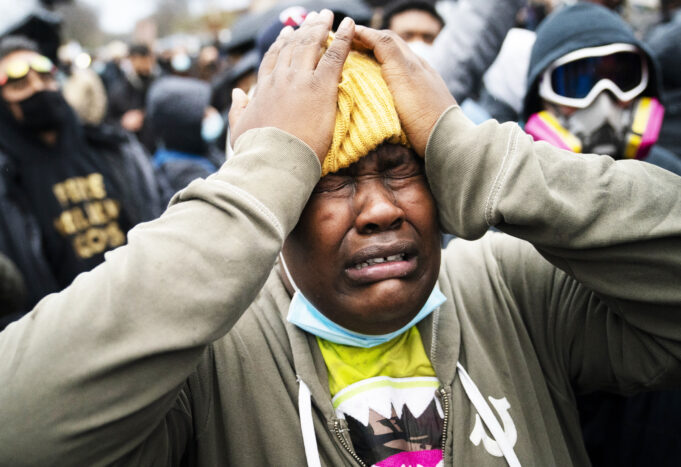by Tariqah Muhammad, Nisa Islam Muhammad and William Muhammad
The year 2021 forced many Black folks into the “valley of decision.” Factors included the Covid-19 pandemic’s exacerbation of issues in health disparities, displacement and housing insecurity and food apartheid that disproportionately impacted Black Americans. But in the midst of the trials and difficulties, many Blacks began realizing their options are either do for self or perish.
Celebrating the New Year amid the traditional revelry, fanfare and customary resolutions for change, some observers note that the start of 2022 requires those dedicated to Black advancement and progress establish new priorities by removing stigmas associated with separation, and to promote nation-building activities that serve the masses in Black communities locally and abroad.
“When all boots were on the streets around this nation and around the world, we progressed to getting court settlements, bills changed, and documents that would help our people across the nation and across the world,” said Justin Blake, uncle and spokesman for Jacob Blake, whose August 2020 shooting by police set off days of tumultuous protests in Kenosha, Wisconsin.
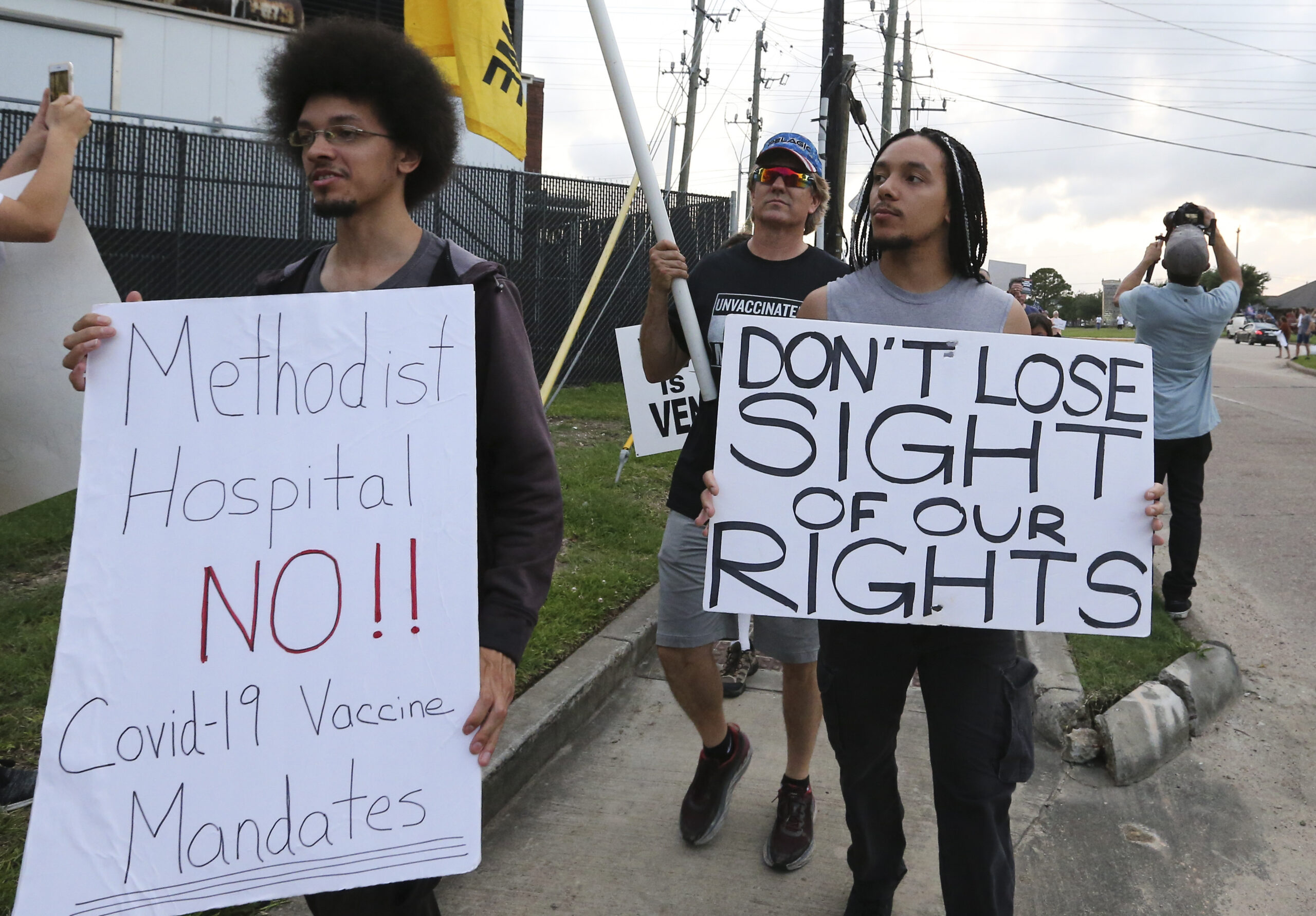
“In 2022, we have to aim a little bit higher, we have to conduit our money together in the United States with our Haitian, Jamaican, Belizean, Ghanaians, Nigerians and African Americans, the Nation of Islam, Moors, and everybody else and we have to learn to agree to disagree,” Mr. Blake said. “We’re at such an historical point that if we work together, we truly can come out victorious.”
Mr. Blake argued self-determination must outweigh party loyalty and agreed with the Honorable Minister Louis Farrakhan and the Nation of Islam’s position that “politics without economics is symbol without substance.” Now is the time to look to self for true solutions, said Mr. Blake.
“One thing for sure is the Democratic Party will never be the same,” he said. “They’ve used, abused, pampered, pimped and outright abused the African American vote. We need to look at building an economic engine and a voting block that can change this world.”
Covid pandemic and health concerns
The ongoing Covid-19 pandemic continued to reveal the deep-rooted racial and economic divide in so many areas. “That’s been a major challenge for Black people,” said Student Minister Dr. Ava Muhammad, National Spokesperson for Min. Farrakhan and the Nation of Islam.
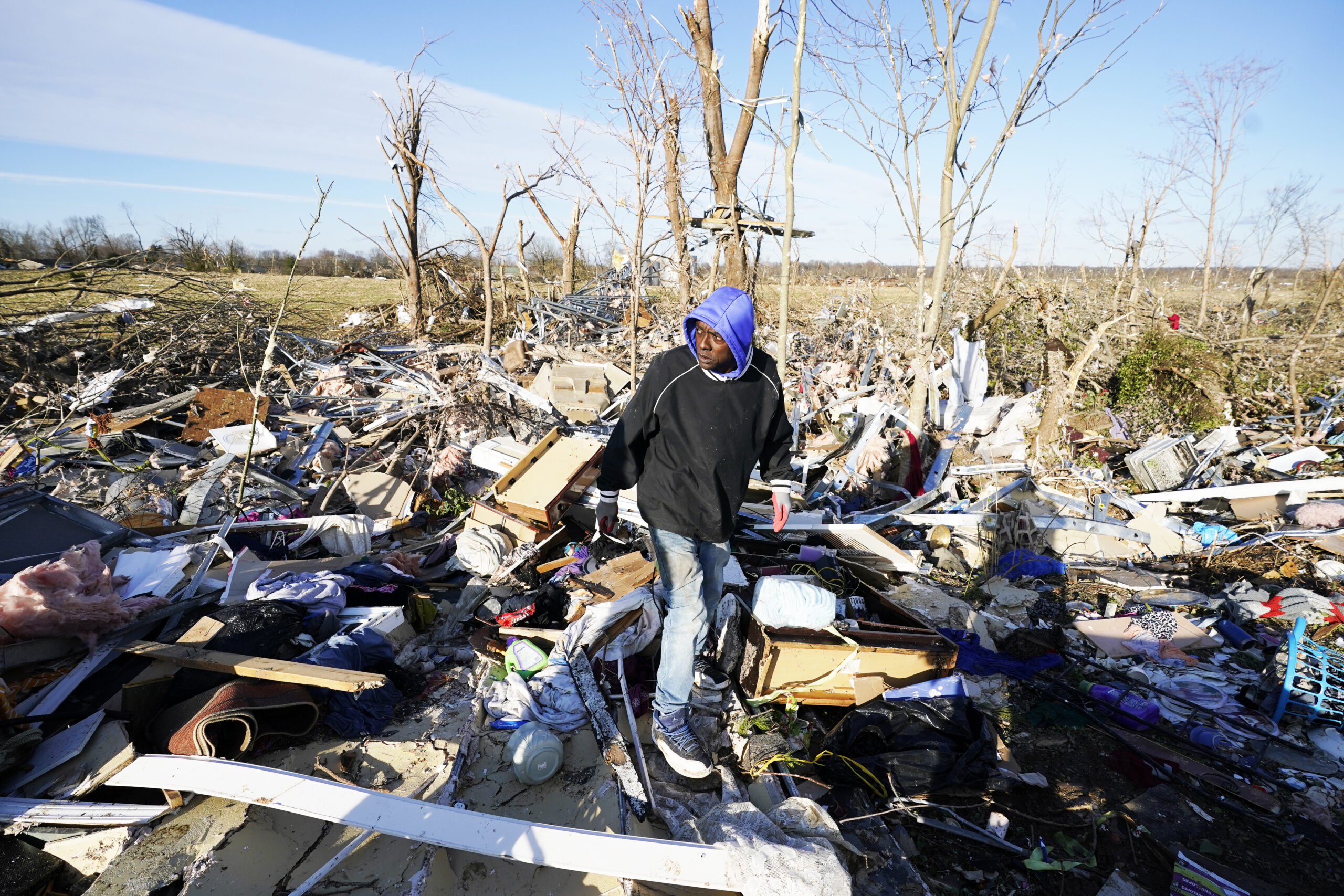
“The absence of healthcare for something other than the coronavirus—for many months people with cancer, heart problems, diabetes, chronic diseases which as we know feed the virus but also require management in and of themselves. And so, toward the summer there were reports of more and more people showing up with advanced stage-4 cancer, etc,” she said.
According to APM Research Lab, Black and Indigenous people have the highest Covid-19 mortality rate compared to their White counterparts. Blacks also have the highest rates of cancer, heart disease, diabetes, and respiratory diseases.
“I would say the challenges of 2021 go back to 2020 with the onset of the coronavirus and, more importantly, how it was handled by the U.S. government,” continued Student Min. Ava Muhammad, an attorney and author.
Dr. Akili Graham Muhammad agreed, telling The Final Call that America’s history of little regard to Black life cannot be ignored. “There was a time when our health got significantly better and that was when we left slavery, or it so-called ended and we had those 60 Black towns around America. Our health extraordinarily improved within years,” he said.
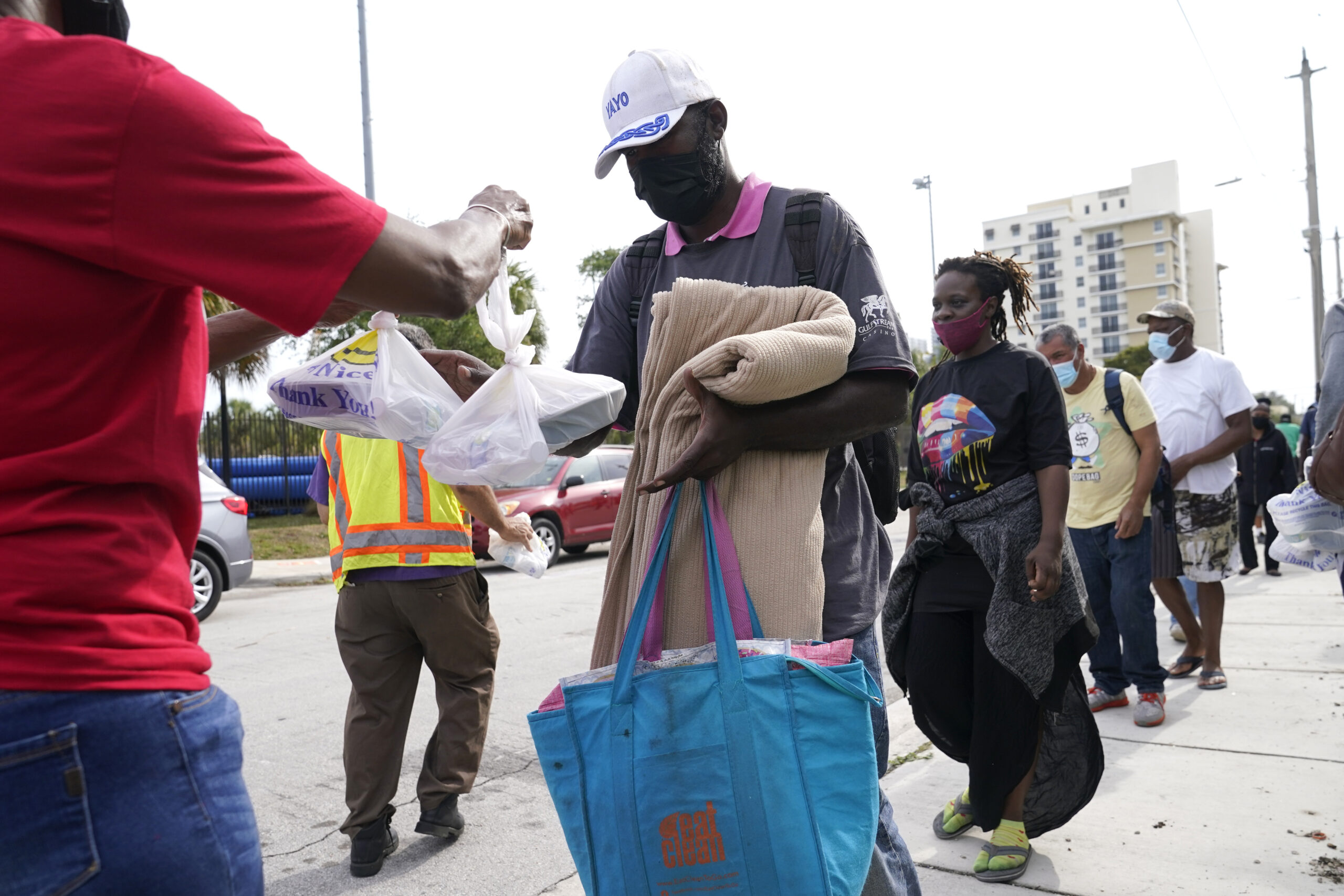
“It went from an average age of 27 of a slave during slavery, and if I remember correctly, the average age went up to 70 within a few years. Then in 1970, our reality went back in the wrong direction.”
Education
From the growth of homeschooling for Black families to the impending return of student loan payments to the questionable increase in HBCU funding to the historic recruitment of Travis Hunter, the education landscape in 2021 had surprises and questions leading into 2022.
Jackson State University football coach and NFL Hall of Famer Deion Sanders shocked the sports world with Travis Hunter as the first No. 1 overall prospect in the recruiting rankings era to choose an HBCU.
“This changes the landscape of college football recruiting. No longer do kids have to go to a large White school to be seen, or to be coached, to reach any professional level of playing football,” Sean Pierce, a 30-year Maryland high school football coach, told The Final Call. “They can go to an HBCU and still get the same exposure and coaching.”
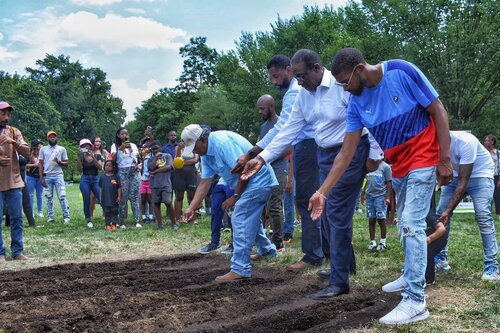
“When I heard Deion got hired, I knew this was going to be his next step. What also assists him is the fact that recruits now are allowed to sell the rights to their names, images and likenesses. They don’t need the large White school to do that anymore. They can do that anywhere.”
President Joe Biden’s $1.7 trillion Build Back Better legislation, which passed in the House but seems threatened in the Senate, included $10 billion for HBCUs, Hispanic-serving institutions and other minority-serving institutions.
“It is important to remember, no matter what the number is, you have to divide it by 10 because it’s spread out over a 10-year period,” Dr. Wilmer Leon, author, commentator, and political scientist told The Final Call. “When you look at how much new money is being injected into the economy, it’s a paltry amount,” he added.
“At the end of the day, Joe Biden has failed to live up to his campaign commitments when it comes to the social safety net side. The reason is because the politics that Joe Biden ran on were never his politics. Joe Biden always has been and always will be a corporatist. He was forced into these positions. I mean the $15 minimum wage, and student loan cancellations.”
Dr. Leon explains that these types of social spending issues were never part of President Biden’s politics.
Student loan repayment begins in February. Black loan borrowers are especially concerned about this new start date because this population often lacks the family wealth necessary to avoid student loans, tends to borrow more and tends to carry the debt longer, sometimes for decades.
President Biden made it clear last February that he did not support the cancellation of up to $50,000 per student borrower as activists want and that he only supported a $10,000 cancellation by Congress.
This past summer, Rep. Ayanna Pressley (D-Ma) explained in a statement, “President Biden has the authority to cancel student loan debt. He has already used that authority to cancel the debt of students defrauded by for-profit colleges, and he has used it to cancel the interest on federal student loans for borrowers across the country. Student debt cancellation is a racial and economic justice issue and President Biden should act.”
And for younger children, while many parents were joyful to send their children back to in-person learning, a growing number of Black parents decided to homeschool and start their own education institutions.
The April 2020 Census Bureau Household Pulse Survey reported that three percent of Black parents homeschooled their children. The latest survey found by October 2021, that number was up to 16 percent. The pandemic was a major concern but the rise in bullying of Black and Brown children was also a push for many parents.
“Reasons could also be the quality of education that their child was receiving in public school. Secondly, it can be the economic aspect of it. If you were going to private school, a lot of people’s economics changed with the loss of jobs,” Talib ul Hikmah Karriem, director of Muhammad University of Islam (MUI), told The Final Call. MUI is the independent educational system established by the Most Honorable Elijah Muhammad, Eternal Leader of the Nation of Islam.
“Then you have the convenience and a greater rise of online education, which is often cheaper than a private school education,” added Mr. Karriem. For Black parents, they also viewed the importance of crafting their children’s curriculum and incorporating Black and African history lessons as factors in homeschooling.

Forging ahead despite dwindling social safety nets
This year the fear and reality of evictions in the midst of the pandemic continued. In Chicago, a rise in displacement rates frightened Black residents. Shannon Bennett, executive director of the Kenwood Oakland Community Organization in Chicago, told The Final Call, “If we don’t see that we’re all we got, that there’s no rescue team for the Black community, it opens the opportunity for us to be community builders.”
Mr. Bennett witnessed firsthand the distress many residents experienced as the Obama Presidential Center began pushing them further South of Chicago. The nearly $1 billion project will be located in Jackson Park and near Woodlawn, Kenwood and South Shore.
“People are exhausted and drained by all the social issues we already had, and they’re like multiplied during the pandemic,” he continued.
As if matters could not get any worse, the end of Illinois Governor J.B. Pritzker’s eviction moratorium in early October meant many would go without pandemic relief to pay their rent.
In the state alone, 34,000 Black residents were likely to lose their home.
Across the U.S., Black renters were 9.7 percent more likely to be evicted compared to their White counterparts at only 4.4 percent, reported U.S. Census Bureau.
Willie “JR” Fleming, co-founder and executive director of the Chicago Anti-Eviction Campaign said that without Black land ownership, investment and support, Black Americans will continue to see the numbers get worse.
“I think it’s going to be exasperated. Given the fact that we lost a lot of wealth through this pandemic, I know we’re going to lose more land and housing based on the data I’ve seen. … We’re going to see way more displacement, way more loss of land,” Mr. Fleming told The Final Call. Yet even amid the hardship there were glimpses of progress.
This year, the pandemic and lack of access to healthy foods drove more families to food pantries across the country. Twenty-one percent of Blacks (one in five), are expected to experience food insecurity in 2021, compared to 11 percent of Whites (one in nine), reported Feeding America.
In response to this the Detroit Black Community Food Security Network, Edith Family Farms, The Well at Oxon Run, EVOLVE are just a few organizations pushing residents to grow their own food. Others have made use of their local mosque or church to host food pantries and giveaways.
The Fruit of Islam (FOI), men who belong to the Nation of Islam, have been a strong presence in cities across the country during the pandemic. They helped donate thousands of meals to families in need whether it be in the street or from a local mosque.
Author and imam Amin Nathari told The Final Call that Black communities helping one another is becoming the only option. “When the rest of the country catches a cold, the rest of us get pneumonia,” he said, referring to the pandemic. “Our people tend to be at the lower end of the spectrum; because of this pandemic, that just further exasperated the challenges we already had.
“If we’re really going to talk about separation and doing for self, these kind of things (feeding from our own institutions) are the hallmark of an independent people. If Covid has shown us anything, it’s that our people have needs beyond spiritual,” said Imam Nathari.
“Moving into 2021, I think this year we saw Black people undergoing a divide in our house because more and more of our people are experiencing a desire for independence,” observed Student Min. Ava Muhammad.
She said slowly but surely, more and more Black people are opting towards owning land.
“Stonecrest has 60,000 people,” she said, referring to the predominantly Black city in Georgia. “This is a city that was created by him [the mayor] and we didn’t know that. He decided he just didn’t want just a Black-dominated community, he wanted Stonecrest to have a status of a city where you could spend your own taxes on yourself.”
What the mayor of Stonecrest did is an example for Black Americans to follow, she continued.
“That’s just one of many countless achievements, the purchase of land not only by registered Muslims but a number of Black people, the return to farming and producing our own food, the opening of Black educational institutes—all of that has taken place.”
For people like Raymond Bradford, a member of the Hebrew Israelite community, leaving the U.S. completely has given him peace of mind and opportunity. He relocated to Tanzania in East Africa in early 2021.
“In a nutshell, the environment of the United States has changed so drastically since I was much younger and I see the direction that it’s heading in and me being an Israelite and being spiritual by nature, I (saw) the writing on the wall,” Mr. Bradford said.
Seeking permanent residency as an entrepreneur and business owner, Mr. Bradford said he and his family couldn’t be happier with their decision to relocate and that living in Africa has been less stressful than living back in the states. “I can relax a little more here,” he told The Final Call. “I’m not worried about getting shot by my brothers or by any random crazy on the streets or the cops, and that’s not a concern any longer. I am living a virtually stress-free life.”
Student Minister Abdul Hakeem Muhammad, European Region Representative of Min. Farrakhan and the Nation of Islam, noted that the need for the coming together of Blacks throughout the Diaspora is becoming more evident for 2021 and beyond.
“The Minister taught me years ago of a scripture in the Bible that every man and woman will return ultimately to their own vine and fig tree, and he said at some point our people will have to return back to the Caribbean and return back to Africa,” Minister Abdul Hakeem Muhammad told The Final Call.
“So I’ve seen people become exceedingly reflective and dissatisfied under (Covid) lockdown. We’ve been on a mission to encourage as many of our brothers and sisters here in the European Region to start to make preparations to repatriate back to the Caribbean and to repatriate back to Africa,” he added.
“We started a club called the repatriation club where we help our people to source land and to connect them with small businesses, men and women of integrity, and start weaning off of the dependency that we have built up over all of these generations here in Europe.”












